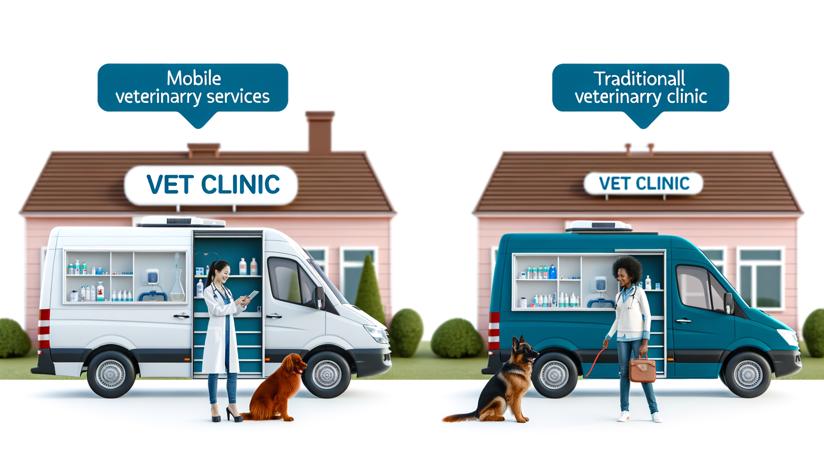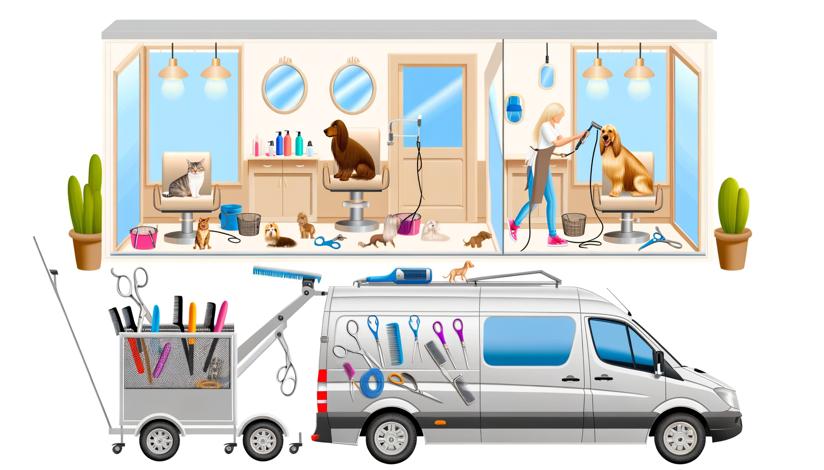

Traditional veterinary clinics are brick-and-mortar establishments that have been around for many years. They typically have a fixed location where you can bring your pet for check-ups, vaccinations, surgeries, and other medical treatments. These clinics are staffed with a team of experienced and licensed veterinarians, vet technicians, and support staff.
On the other hand, mobile veterinary services are a relatively newer concept. These services are designed to bring veterinary care directly to your doorstep. With mobile veterinary services, a veterinarian and their team will travel to your home or location of choice, equipped with all the necessary medical equipment and supplies to treat your pet. This can be especially beneficial for pets who may experience anxiety or stress when visiting a traditional clinic.
One of the key advantages of mobile veterinary services is convenience. Instead of having to transport your pet to a clinic, you can save time by having the vet come to you. This is particularly useful for pet owners with busy schedules or limited mobility. Additionally, mobile veterinary services can be especially helpful for pets with limited mobility or chronic illnesses that make it difficult for them to travel.
Another advantage of mobile veterinary services is personalized care. In a traditional clinic, there may be multiple veterinarians and staff members who see your pet. With mobile veterinary services, you often have the same veterinarian who will be familiar with your pet's medical history and individual needs. This can lead to a more personalized and tailored approach to your pet's healthcare.
On the other hand, traditional veterinary clinics have some distinct advantages as well. These clinics typically have a wider range of medical equipment and facilities, allowing for more comprehensive diagnostics and treatments. Additionally, traditional clinics may have access to specialized services such as radiology, advanced surgeries, or overnight stays for pets requiring monitoring or intensive care.
Traditional clinics also provide a sense of community and socialization for pets. While waiting for their appointment, pets may have the opportunity to interact with other animals, helping with their socialization skills. Some clinics even offer boarding services or playgroups for pets, which can be beneficial for pet owners who need temporary care for their pets.
In terms of cost, the fees for mobile veterinary services may be slightly higher compared to traditional clinics. This is due to the additional expenses associated with travel and equipment maintenance. However, it's important to consider the potential savings in time and stress when opting for mobile veterinary services.
When deciding between mobile veterinary services and traditional clinics, it's essential to assess your pet's specific needs. If your pet requires specialized services or extensive diagnostic testing, a traditional clinic may be the better option. However, if convenience, personalized care, and reduced stress are your priorities, then mobile veterinary services may be the ideal choice for you and your pet.
In conclusion, both mobile veterinary services and traditional clinics have their own unique advantages and disadvantages. Ultimately, the best choice for your pet will depend on their specific needs, your preferences, and your budget. It's important to carefully evaluate the pros and cons of each option before making a decision. Consult with your veterinarian to discuss which option may be best for your pet's health and well-being.

Convenience
Personalized care

Limited medical equipment and facilities
Higher cost














-
www.example.com/mobile-veterinary-services-vs-traditional-clinics
-
www.example2.com/pros-and-cons-of-mobile-veterinary-services




























